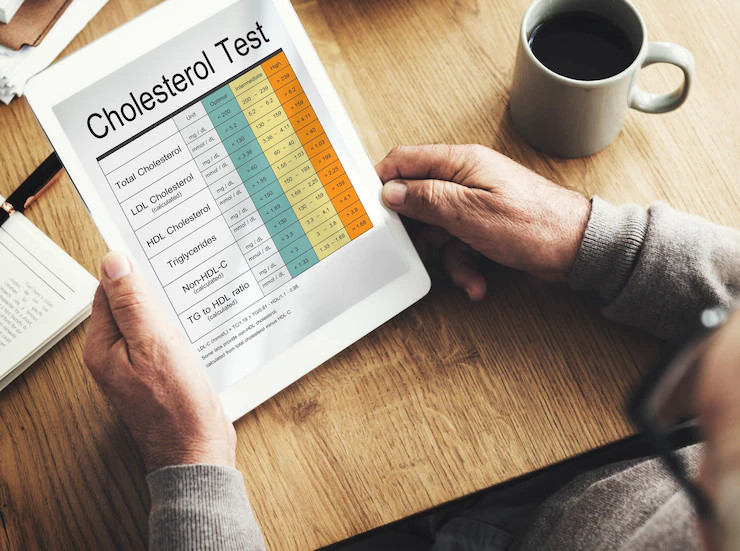Penyakit jantung adalah kondisi adanya masalah pada fungsi jantung dan pembuluh darah di sekitarnya. Kondisi ini sebaiknya tidak Anda remehkan karena menyebabkan penyakit bertambah parah dan memicu komplikasi yang berakibat fatal.
Apa Itu Penyakit Jantung?
Penyakit jantung adalah kondisi yang menggambarkan berbagai masalah pada sistem dan fungsi jantung. Penyakit jantung meliputi:
- Penyakit pembuluh darah seperti penyakit arteri koroner
- Detak jantung tidak teratur (aritmia)
- Masalah jantung yang Anda alami sejak lahir (cacat jantung bawaan)
- Penyakit otot jantung
- Penyakit katup jantung
Penyakit jantung sering kali tidak menimbulkan gejala padahal kondisi ini perlu penanganan cepat dan tepat. Adanya masalah pada fungsi jantung dan peredaran darah dapat menyebabkan gangguan aliran darah ke organ. Jika hal ini terjadi, beberapa fungsi tubuh dapat terganggu. Pada kondisi yang parah, penyakit jantung dapat menyebabkan komplikasi yang memicu kematian.
Baca Juga: Cara Menurunkan Risiko Gagal Jantung
Komplikasi Penyakit Jantung yang Perlu Diwaspadai
Beberapa komplikasi penyakit jantung yang membutuhkan penanganan segera dan dapat membahayakan nyawa, di antaranya:
Gagal jantung
Gagal jantung adalah salah satu komplikasi paling umum yang terjadi akibat penyakit jantung. Definisi gagal jantung adalah kondisi dimana jantung gagal memompa darah ke seluruh tubuh seperti seharusnya.
Penyebab gagal jantung di antaranya menyempitnya pembuluh darah di jantung sehingga menyebabkan tekanan darah tingggi dan tidak terkontrol. Akhibatnya jantung menjadi lemah dan kaku sehingga sulit memompa darah secara normal.
Serangan jantung
Serangan jantung terjadi ketika aliran darah ke jantung tersumbat baik oleh tumpukan lemak, kolesterol atau zat lainnya sehingga otot jantung tidak mendapat aliran darah. Gejala serangan jantung yang umumnya dirasakan antara lain nyeri dada, sesak napas, mual, muntah atau sakit perut.
Serangan jantung dapat terjadi kapan saja, namun umumnya lebih sering terjadi di pagi hari ketika organ tubuh sedang mempersiapkan aktivitas dengan normal.
Stroke
Stroke adalah kondisi ketika pasokan darah ke otak mengalami gangguan pasokan aliran darah akibat penyumbatan atau pecahnya pembuluh darah. Stroke merupakan kondisi darurat yang perlu ditangani segera. Penanganan yang cepat dan tepat dapat meminimalisir risiko kelumpuhan dan kerusakan organ lainnya.
Baca Juga: Kenali Perbedaan Gagal Jantung Akut dan Kronis
Aneurisme
Aneurisma adalah salah satu komplikasi serius pada penyakit jantung. Aneurisma adalah terbentuknya tonjolan pada dinding arteri akibat melemahnya dinding pembuluh darah. Jika tonjolan ini robek, Anda dapat mengalami perdarahan yang membahayakan jiwa.
Atrial fibrilasi
Atrial fibrilasi atau yang dikenal dengan istilah A-fib adalah terjadinya detak jantung yang tidak normal. Kondisi ini sering kali terjadi sangat cepat dan dapat menyebabkan pembekuan darah di jantung. A-fib dapat meningkatkan risiko stroke, gagal jantung dan komplikasi terkait jantung lainnya.
Pada saat A-fib terjadi, bilik atas jantung berdetak secara tidak teratur dan tidak sinkron dengan bilik bawah. Pada sebagian orang A-fib tidak memiliki gejala, namun A-fib juga dapat ditandai dengan detak jantung yang cepat dan berdebar-debar.
Angina
Angina adalah nyeri dada yang disebabkan penyakit jantung. Nyeri dada ini berbeda dengan serangan jantung namun bisa mengindikasikan serangan jantung. Nyeri dapat dirasakan di leher, bahu atau rahang. Kondisi ini dapat dipicu oleh stres dan aktivitias fisik yang berat.
Penyakit jantung yang tidak ditangani dengan tepat dapat menyebabkan komplikasi mematikan. Apabila Anda memiliki tekanan darah dan kolesterol tinggi serta mengalami gejala penyakit jantung sebaiknya segera periksakan ke dokter untuk mendapat penanganan. Anda juga bisa mendapatkan informasi dan layanan konsultasi kesehatan pada aplikasi Ai Care yang berbasis kecerdasan buatan.
Mau tahu informasi seputar penyakit lainnya? Cek di sini, ya!
- dr. Monica Salim
Mayo Clinic. Heart Disease. Available from: https://www.mayoclinic.org/diseases-conditions/heart-disease/symptoms-causes/syc-20353118
NHS. Compliacations. Available from: https://www.nhs.uk/conditions/heart-attack/complications/
Illiades, C. (2020). 7 Complications of Heart Disease. Available from: https://www.healthgrades.com/right-care/heart-health/7-complications-of-heart-disease
Mayo Clinic. Available from: https://www.mayoclinic.org/diseases-conditions/angina/symptoms-causes/syc-20369373
Mayo Clinic. Atrial fibrillation. Available from: https://www.mayoclinic.org/diseases-conditions/atrial-fibrillation/symptoms-causes/syc-20350624











